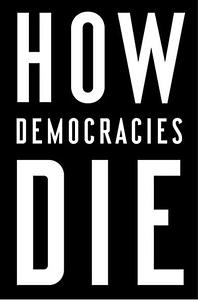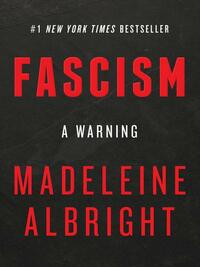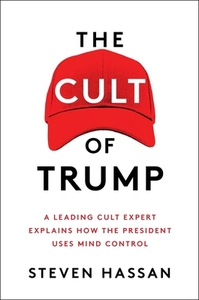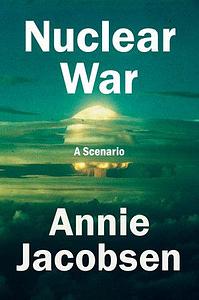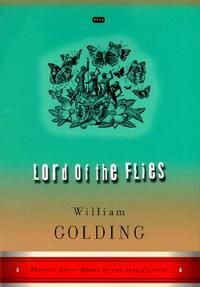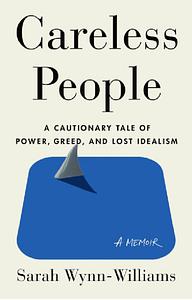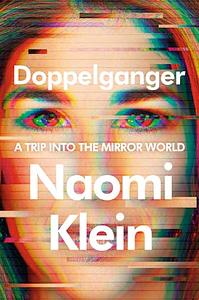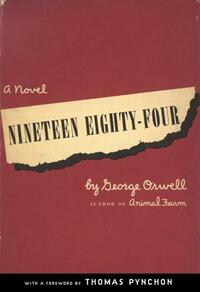Take a photo of a barcode or cover
the_grimm_reader's Reviews (242)
The Big Lie: Election Chaos, Political Opportunism, and the State of American Politics After 2020
I started this book shortly before Election Day 2024, and have now finished it shortly after. I barely registered the former (and sadly, future) President when he started his run in 2016. His tactics and bullhorn were too loud to ignore, so I was glad to revisit those earlier stages through this book. This book is wonderfully organized, offering a wide scope of the entanglements and players that have given our bully-President a runway. The book is generally deflating and infuriating, as it clearly shows a being driven by a hunger for personal power and glorification, not the well-being of American democracy or its citizens. Yet, here we are, and this new America has placed this man back in the seat of power. Are the days of democracy numbered in these United States? It appears that many of our countrymen do not love it nearly as much as they professed, willfully turning end-up for a would-be strongman. I do not see the appeal, and have not at any point understood it. Ah, this is turning into a depressing diatribe. Read the book if you want deeper context on the events that have led this man to the White House again, and if you want to know the names of the political actors that have actively worked to erode the norms of our nation in service to Party over the people. They will likely be written about many times in the years to come.
Published in 2018, this book reads like a prophetic warning found in a time capsule. The authors present clear paths forward to restore the eroding guardrails of democracy in the United States, but in the 6 years since this books publication it seems little has changed in the polarized landscape of political warfare. The rhetoric of violence and intolerance have only increased, and supporters on extreme sides of the game continue to tear our democracy asunder, with those of us who are left-or-right of center seeing it unravel from the raggedy edges. In 2024, we are seeing people entrenched in their foxholes, only digging deeper. I wonder what the authors thoughts are today, especially the two immediate years after the publication? Many of their fears and predictions have been realized in one way or another. I can imagine some reading the book in 2018 and writing off many of their warnings as hyperbole, but it’s hard to argue with their presentation through the lens of 2024.
Considering that the copyright date on this book is 2018, I would classify it as 75% history, 25% prophetic warning. First, I appreciated the breadth of the historical coverage on fully Fascist leaders, as well as the insight into those acting in a quasi-Fascist roles using the levers of democracy to dismantle democracy itself.
Six years since it’s publication, it is clear to see that the urgent overtones built into this work are warranted, the warnings worth heeding. We live in a peculiar time where a candidate for the office of the President of the United States casually states that they’d be happy to be a day-one dictator, receiving cheers from fellow citizens draped in the banners and colors of our Democracy. The fog of us-versus-them has descended on us through divisive rhetoric meant to insight discord, the fertile soil that power-hungry hucksters use to cultivate their own position of authority.
Someone recently asked me where I get my news; it’s a fair question. I happily said that I read across the spectrum, even watching biased programs with views out of alignment with my own. Further, I said that I prefer to look at history when I do not understand something. History, with enough distance, seems to free itself from clutches of propaganda, eventually. This book, like many others, does a fair job of providing historical context to Fascism, and the many masks it has worn.
Globally, we have been here before, and we have witnessed the suffering and chaos wrought by ego-maniacs with “only I can fix it” messages. Unfortunately, we have not witnessed the full rise of this type of character in the United States of America, and the truth is that we seem uncertain on how to deal with it. Does this book provide an outline to a path forward? Not clearly, no, but, it does offer a clear set of signals and tried-and-true maneuvers employed by want-to-be dictators and their minions.
The wolf is at the door and he barely wears the sheep’s clothing—I hope that our Constitution holds against the rising Fascist infections in our country. If it does, it will be because our elected leaders put their selfish desires aside and work beyond party lines for the common good. As of this writing, the hope of bi-partisan progression for the common good of the United States and its Allie’s is barely a consideration.
Six years since it’s publication, it is clear to see that the urgent overtones built into this work are warranted, the warnings worth heeding. We live in a peculiar time where a candidate for the office of the President of the United States casually states that they’d be happy to be a day-one dictator, receiving cheers from fellow citizens draped in the banners and colors of our Democracy. The fog of us-versus-them has descended on us through divisive rhetoric meant to insight discord, the fertile soil that power-hungry hucksters use to cultivate their own position of authority.
Someone recently asked me where I get my news; it’s a fair question. I happily said that I read across the spectrum, even watching biased programs with views out of alignment with my own. Further, I said that I prefer to look at history when I do not understand something. History, with enough distance, seems to free itself from clutches of propaganda, eventually. This book, like many others, does a fair job of providing historical context to Fascism, and the many masks it has worn.
Globally, we have been here before, and we have witnessed the suffering and chaos wrought by ego-maniacs with “only I can fix it” messages. Unfortunately, we have not witnessed the full rise of this type of character in the United States of America, and the truth is that we seem uncertain on how to deal with it. Does this book provide an outline to a path forward? Not clearly, no, but, it does offer a clear set of signals and tried-and-true maneuvers employed by want-to-be dictators and their minions.
The wolf is at the door and he barely wears the sheep’s clothing—I hope that our Constitution holds against the rising Fascist infections in our country. If it does, it will be because our elected leaders put their selfish desires aside and work beyond party lines for the common good. As of this writing, the hope of bi-partisan progression for the common good of the United States and its Allie’s is barely a consideration.
I read this book during Donald Trump's presidency, and it was an eye-opener. At the time, I was hesitant to apply the word cult to the Make America Great Again (MAGA) movement. In fact, the movement hadn't yet fully entered the public lexicon as an everyday consideration—at least not for me.
But something shifted during that period. I began noticing an alarming overlap between religion and politics, as well as stranger behaviors among my religious friends. Odd, racially charged statements started creeping into conversations. A new fervor for migrant hatred took hold. And what struck me most was the near-reverential devotion—something akin to adoration—that many seemed to have for Donald Trump.
This unsettling transformation led me to research cults in an attempt to better understand what I was witnessing. That’s when I came across The Cult of Trump by Steven Hassan. I hesitated before picking it up, wondering if I was simply seeking confirmation of my suspicions. But curiosity won out, and I’m very glad it did.
Hassan’s book isn’t just about Donald Trump or the MAGA movement. It explores cults in general, drawing from Hassan’s own firsthand experiences as a former cult member, and it provides guidance on deprogramming loved ones who have fallen into cult-like thinking. It was an informative and valuable read—but it was also a genie that couldn’t be put back in the bottle.
Hassan does an excellent job breaking down the stages of cult immersion, the psychological mechanisms involved, and the subtle ways people can become ensnared without realizing it. More importantly, he underscores a chilling truth: many cult members are intelligent, rational people who never would have believed they could be manipulated in such a way. This realization hit hard, as I watched the MAGA movement spread like wildfire, blurring the lines between politics and religious devotion.
As often happens when reading a powerful book, it reshaped how I saw the world at the time. I began questioning the cult-like nature of groups I had been part of—clubs, sports teams, businesses, movements, and spiritual gatherings. Suddenly, everything looked like a cult. Even now, I carry a healthy dose of skepticism toward anything that demands fanatical participation, rallies behind a slogan, or follows a charismatic, bombastic leader.
Will this book help? I think it could help some. More than anything, it provides a framework for understanding what we’re seeing in the United States. The MAGA movement is uniquely insidious because it fuses religion, anger, bias, greed, white supremacy, and politics into a singular, deeply entrenched ideology. Its fibers reach into people’s minds and weave themselves into their sense of identity.
I truly believe the MAGA movement is a shadow over our republic and representative democracy. I fear that overcoming this chapter in our history will require immense effort and resolve. If our nation has a soul, then it is in danger.
But something shifted during that period. I began noticing an alarming overlap between religion and politics, as well as stranger behaviors among my religious friends. Odd, racially charged statements started creeping into conversations. A new fervor for migrant hatred took hold. And what struck me most was the near-reverential devotion—something akin to adoration—that many seemed to have for Donald Trump.
This unsettling transformation led me to research cults in an attempt to better understand what I was witnessing. That’s when I came across The Cult of Trump by Steven Hassan. I hesitated before picking it up, wondering if I was simply seeking confirmation of my suspicions. But curiosity won out, and I’m very glad it did.
Hassan’s book isn’t just about Donald Trump or the MAGA movement. It explores cults in general, drawing from Hassan’s own firsthand experiences as a former cult member, and it provides guidance on deprogramming loved ones who have fallen into cult-like thinking. It was an informative and valuable read—but it was also a genie that couldn’t be put back in the bottle.
Hassan does an excellent job breaking down the stages of cult immersion, the psychological mechanisms involved, and the subtle ways people can become ensnared without realizing it. More importantly, he underscores a chilling truth: many cult members are intelligent, rational people who never would have believed they could be manipulated in such a way. This realization hit hard, as I watched the MAGA movement spread like wildfire, blurring the lines between politics and religious devotion.
As often happens when reading a powerful book, it reshaped how I saw the world at the time. I began questioning the cult-like nature of groups I had been part of—clubs, sports teams, businesses, movements, and spiritual gatherings. Suddenly, everything looked like a cult. Even now, I carry a healthy dose of skepticism toward anything that demands fanatical participation, rallies behind a slogan, or follows a charismatic, bombastic leader.
Will this book help? I think it could help some. More than anything, it provides a framework for understanding what we’re seeing in the United States. The MAGA movement is uniquely insidious because it fuses religion, anger, bias, greed, white supremacy, and politics into a singular, deeply entrenched ideology. Its fibers reach into people’s minds and weave themselves into their sense of identity.
I truly believe the MAGA movement is a shadow over our republic and representative democracy. I fear that overcoming this chapter in our history will require immense effort and resolve. If our nation has a soul, then it is in danger.
Like many readers, I have a short list of books that have painted my worldview with a fine brush. Some have been so revelatory that, upon turning the final page, I could feel my perspective shift—tectonically. Few, however, have painted that perspective with as wide and wild a stroke as Nuclear War: A Scenario by Annie Jacobsen.
To start, a little personal context: as a young boy—well into my teenage years—I was absolutely terrified by the prospect of nuclear war. If you grew up in the 1980s, you may recall the made-for-TV film The Day After. Its special effects were modest, but the psychological fallout was devastating. That film carved itself into my imagination. I had recurring nightmares of nuclear holocaust, so vivid I once confided in my Sunday school teacher, hoping they could offer comfort. They tried.
Eventually, the terror dulled. Nuclear war became something more often seen in the realm of fiction, especially science fiction—like Sarah Connor’s vision in Terminator 2: Judgment Day. That helped me shelve the fear as a kind of childish worry, something overblown and exaggerated by fantasy.
But in the past decade, I’ve felt a familiar knocking at the gate of that fear. Why now? I think it’s age, greater access to information, and an eroding confidence in the volatile individuals who hold the nuclear codes. I’ve grown more willing to look into the darker corners of reality without the frosting of comfort. Enter Annie Jacobsen.
Nuclear War: A Scenario is, without hyperbole, the most terrifying book I have ever read.
Jacobsen is known for her meticulous research, and this book is no exception—thoroughly cited, expertly structured, and packed with firsthand accounts and hard data. What sets this one apart is the format: a minute-by-minute, hour-by-hour fictionalized scenario based on factual analysis, illustrating how one nuclear incident might unfold.
Notice I said “hour-by-hour.” Not days. Not weeks. Just one hour. That’s all it takes.
In that devastatingly brief window of time, we watch humans make impossible decisions. We watch plausible miscommunications snowball into global catastrophe. And the worst part? It all makes sense. It is terrifying because it’s not just believable—it’s probable.
There are no heroes here. No smarter, calmer heads prevailing. This is a Rube Goldberg machine of death: overlapping systems, sensors, programs, and chains of command, all meant to preserve peace while simultaneously holding the power to annihilate us. In Jacobsen’s scenario, those systems fail us. We fail ourselves.
Throughout the narrative, Jacobsen deftly weaves in chilling real-world history. There were moments I had to stop reading, stunned by revelations I had never heard before—revelations that explain exactly how close we’ve come to extinction, multiple times. Accepting this information means stepping out of the fog of delusion and facing a grossly underplayed existential reality. We are not protected. We are poised—on the razor’s edge of doom.
Not doom for some. Doom for all.
When I finished the book, the sky seemed bluer. Each breath felt heavier and sweeter. The sound of birds, sharper. The presence of my small family—achingly precious. Since reading Nuclear War: A Scenario, I’ve thought about it daily. Many times a day. It has stripped so many of my worries of their false importance.
We are living in an age of madmen—erratic figures with immense power, surrounded by flawed systems, holding the keys to irreversible destruction. They do not cherish life, not truly. They are beasts in suits, and they walk among us.
And yet, through my fear, Jacobsen’s work has left me with resolve: to pay attention, to care more deeply, to hold others—and myself—to higher standards. As a child, nuclear fire scorched through my nightmares. As an adult, this book ignites a fire in my awareness—a burning that won’t go out.
Annie Jacobsen’s Nuclear War: A Scenario wields a very wide brush, indeed.
To start, a little personal context: as a young boy—well into my teenage years—I was absolutely terrified by the prospect of nuclear war. If you grew up in the 1980s, you may recall the made-for-TV film The Day After. Its special effects were modest, but the psychological fallout was devastating. That film carved itself into my imagination. I had recurring nightmares of nuclear holocaust, so vivid I once confided in my Sunday school teacher, hoping they could offer comfort. They tried.
Eventually, the terror dulled. Nuclear war became something more often seen in the realm of fiction, especially science fiction—like Sarah Connor’s vision in Terminator 2: Judgment Day. That helped me shelve the fear as a kind of childish worry, something overblown and exaggerated by fantasy.
But in the past decade, I’ve felt a familiar knocking at the gate of that fear. Why now? I think it’s age, greater access to information, and an eroding confidence in the volatile individuals who hold the nuclear codes. I’ve grown more willing to look into the darker corners of reality without the frosting of comfort. Enter Annie Jacobsen.
Nuclear War: A Scenario is, without hyperbole, the most terrifying book I have ever read.
Jacobsen is known for her meticulous research, and this book is no exception—thoroughly cited, expertly structured, and packed with firsthand accounts and hard data. What sets this one apart is the format: a minute-by-minute, hour-by-hour fictionalized scenario based on factual analysis, illustrating how one nuclear incident might unfold.
Notice I said “hour-by-hour.” Not days. Not weeks. Just one hour. That’s all it takes.
In that devastatingly brief window of time, we watch humans make impossible decisions. We watch plausible miscommunications snowball into global catastrophe. And the worst part? It all makes sense. It is terrifying because it’s not just believable—it’s probable.
There are no heroes here. No smarter, calmer heads prevailing. This is a Rube Goldberg machine of death: overlapping systems, sensors, programs, and chains of command, all meant to preserve peace while simultaneously holding the power to annihilate us. In Jacobsen’s scenario, those systems fail us. We fail ourselves.
Throughout the narrative, Jacobsen deftly weaves in chilling real-world history. There were moments I had to stop reading, stunned by revelations I had never heard before—revelations that explain exactly how close we’ve come to extinction, multiple times. Accepting this information means stepping out of the fog of delusion and facing a grossly underplayed existential reality. We are not protected. We are poised—on the razor’s edge of doom.
Not doom for some. Doom for all.
When I finished the book, the sky seemed bluer. Each breath felt heavier and sweeter. The sound of birds, sharper. The presence of my small family—achingly precious. Since reading Nuclear War: A Scenario, I’ve thought about it daily. Many times a day. It has stripped so many of my worries of their false importance.
We are living in an age of madmen—erratic figures with immense power, surrounded by flawed systems, holding the keys to irreversible destruction. They do not cherish life, not truly. They are beasts in suits, and they walk among us.
And yet, through my fear, Jacobsen’s work has left me with resolve: to pay attention, to care more deeply, to hold others—and myself—to higher standards. As a child, nuclear fire scorched through my nightmares. As an adult, this book ignites a fire in my awareness—a burning that won’t go out.
Annie Jacobsen’s Nuclear War: A Scenario wields a very wide brush, indeed.
I'm not sure why the bug bit now, but after nearly 30 years, I’ve decided to revisit many of the books that were once assigned to me in high school. Sadly, I wasn’t ready for most of them back then—either because I wasn’t interested, or because I was far more invested in the pulpy paperback pocketbooks pulled from my father’s shelves. Lord of the Flies was one of those assigned books I dismissed. I figured the 1990s movie adaptation was good enough, and that was that. But clearly, I missed out on something powerful.
Let me start with the copy I picked up at my local bookstore. Having seen the movie and understood the general premise—boys gone wild on a deserted island—I wanted a version that reflected the island imagery. The one I found was minimal: solid red cover, bold white sans-serif title, a small white crown at the top. What caught my eye most, though, was the inclusion of a foreword by Stephen King. In it, King reflects on his early love of reading, and how Lord of the Flies left an indelible mark on his imagination. It was nostalgic and moving, and it gave me a new sense of reverence as I opened the book.
There was a moment—one sharp, gut-punch moment—when the story turned for me. Whatever hopes I had for the characters were dashed, replaced by dread and the dark certainty of what humans are capable of. It was in that moment I understood why Lord of the Flies left such a stain on King’s own storytelling. The blood and terror of this book aren't just shocking—they're foundational.
It wasn’t until I closed the book that I realized the cover I chose was a haunting riff on the famous Keep Calm and Carry On poster from WWII—a phrase meant to steady citizens in the face of catastrophe. That juxtaposition, after finishing the story, hit me hard. It still lingers.
As for the book itself, it held my attention from the first page. There's no slow build—we’re dropped straight into the chaos alongside a group of British schoolboys stranded on an island. The main characters—Ralph, Piggy, Jack Merridew, Simon, Roger, and the twins Sam and Eric—are vividly described. Though I had the film’s imagery in mind at first, those faded quickly as my imagination filled in new, more fitting forms based on Golding’s text.
This story isn’t about childhood mischief or the mistakes of youth. It’s about the collapse of order, the tension between civility and savagery, and the fragile boundaries that hold society together. Golding explores how quickly those boundaries dissolve in the absence of law, structure, and accountability. Every boy in this book represents some facet of our shared humanity—leadership, reason, fear, cruelty, innocence, and the will to power.
What shocked me most was how eerily reflective their behavior was of adults. While these boys descend into madness, their adult counterparts are embroiled in nuclear war—a grim parallel. The breakdown of the island society doesn’t feel childish at all; it mirrors the breakdowns we’ve seen in history, and perhaps the ones we’re seeing now.
Reading this book left a deep impression on me. I imagine it has for countless others. I understand now why Stephen King called it transformative. My only regret is watching the movie first. Though the 1990s film was a fair adaptation (with some changes, including American characters), it softened the blow. I wish I’d come to this book cold. One particular scene hit me much harder in the book than in the film—and it marked the point where dread fully took hold.
Still, I have no complaints. Lord of the Flies is brutal, brilliant, and completely worth reading. I recommend it to anyone willing to look at the dark mirror it holds up—not just to society, but to ourselves.
Let me start with the copy I picked up at my local bookstore. Having seen the movie and understood the general premise—boys gone wild on a deserted island—I wanted a version that reflected the island imagery. The one I found was minimal: solid red cover, bold white sans-serif title, a small white crown at the top. What caught my eye most, though, was the inclusion of a foreword by Stephen King. In it, King reflects on his early love of reading, and how Lord of the Flies left an indelible mark on his imagination. It was nostalgic and moving, and it gave me a new sense of reverence as I opened the book.
There was a moment—one sharp, gut-punch moment—when the story turned for me. Whatever hopes I had for the characters were dashed, replaced by dread and the dark certainty of what humans are capable of. It was in that moment I understood why Lord of the Flies left such a stain on King’s own storytelling. The blood and terror of this book aren't just shocking—they're foundational.
It wasn’t until I closed the book that I realized the cover I chose was a haunting riff on the famous Keep Calm and Carry On poster from WWII—a phrase meant to steady citizens in the face of catastrophe. That juxtaposition, after finishing the story, hit me hard. It still lingers.
As for the book itself, it held my attention from the first page. There's no slow build—we’re dropped straight into the chaos alongside a group of British schoolboys stranded on an island. The main characters—Ralph, Piggy, Jack Merridew, Simon, Roger, and the twins Sam and Eric—are vividly described. Though I had the film’s imagery in mind at first, those faded quickly as my imagination filled in new, more fitting forms based on Golding’s text.
This story isn’t about childhood mischief or the mistakes of youth. It’s about the collapse of order, the tension between civility and savagery, and the fragile boundaries that hold society together. Golding explores how quickly those boundaries dissolve in the absence of law, structure, and accountability. Every boy in this book represents some facet of our shared humanity—leadership, reason, fear, cruelty, innocence, and the will to power.
What shocked me most was how eerily reflective their behavior was of adults. While these boys descend into madness, their adult counterparts are embroiled in nuclear war—a grim parallel. The breakdown of the island society doesn’t feel childish at all; it mirrors the breakdowns we’ve seen in history, and perhaps the ones we’re seeing now.
Reading this book left a deep impression on me. I imagine it has for countless others. I understand now why Stephen King called it transformative. My only regret is watching the movie first. Though the 1990s film was a fair adaptation (with some changes, including American characters), it softened the blow. I wish I’d come to this book cold. One particular scene hit me much harder in the book than in the film—and it marked the point where dread fully took hold.
Still, I have no complaints. Lord of the Flies is brutal, brilliant, and completely worth reading. I recommend it to anyone willing to look at the dark mirror it holds up—not just to society, but to ourselves.
Well, this book wasn’t in my 2025 reading queue—but when Facebook deployed its legal stormtroopers to silence the author and shut down promotion efforts across the publishing and media world, that was the fastest way to rocket Careless People to the top of my TBR pile.
Careless People is a memoir, and truthfully, if Facebook hadn’t tried to bury it, I might never have known it existed—let alone that it was written by a whistleblower from inside the company. But once I cracked it open, I found a compelling account full of damning insights: shady dealings, shallow slogans, layers of deception, and a level of carelessness so profound it’s hard to believe Facebook has become one of the most powerful companies on Earth.
I typically don’t gravitate toward books like this. But this one hooked me—not because of the drama (though there’s plenty), but because of the eye-opening portrayal of the people behind Facebook’s operation. Especially Mark Zuckerberg. The memoir lays bare the hollowness of the platform’s early promises—free speech, global connection, a better world—and reveals how those ideals, if they ever really existed, have long since evaporated. What’s left behind is a culture of acquisition, unchecked greed, callous indifference, and global influence wielded with astonishing disregard for people, countries, and cultures.
I remember first hearing about Facebook at a marketing luncheon back in 2009. The speaker talked about it like it was the next big thing, and I remember thinking, “So… another MySpace?” Oof. Wrong. Whatever Facebook started as, it’s now an unstoppable advertising machine—and arguably the largest, least secure reservoir of personal data in human history. This book makes it very clear: the platform’s leadership isn’t using that freely given data for the betterment of humanity.
Now, this is a memoir, so not every story comes with receipts. Some of it, you’ll need to take on faith. But where the author’s claims can be verified, they line up with the broader public record—and the outcomes she describes certainly track with what we’ve seen unfold. My biggest takeaway? Probably something we all already suspect: Facebook sucks, and it’s changed the world. Usually, we don’t know whether that change is for better or worse until years later. This book makes a convincing case that the scales have tipped toward worse—far worse—thanks to the company’s careless, and frankly bizarre, leadership.
Should you read it? That depends. If you’re curious about what really goes on behind the Facebook curtain—who the wizard is, how he behaves, what drives him and his inner circle—then yes, Careless People is worth your time.
Just don’t be surprised if you come away feeling like the world’s biggest social media platform is being steered by a very small soul.
Careless People is a memoir, and truthfully, if Facebook hadn’t tried to bury it, I might never have known it existed—let alone that it was written by a whistleblower from inside the company. But once I cracked it open, I found a compelling account full of damning insights: shady dealings, shallow slogans, layers of deception, and a level of carelessness so profound it’s hard to believe Facebook has become one of the most powerful companies on Earth.
I typically don’t gravitate toward books like this. But this one hooked me—not because of the drama (though there’s plenty), but because of the eye-opening portrayal of the people behind Facebook’s operation. Especially Mark Zuckerberg. The memoir lays bare the hollowness of the platform’s early promises—free speech, global connection, a better world—and reveals how those ideals, if they ever really existed, have long since evaporated. What’s left behind is a culture of acquisition, unchecked greed, callous indifference, and global influence wielded with astonishing disregard for people, countries, and cultures.
I remember first hearing about Facebook at a marketing luncheon back in 2009. The speaker talked about it like it was the next big thing, and I remember thinking, “So… another MySpace?” Oof. Wrong. Whatever Facebook started as, it’s now an unstoppable advertising machine—and arguably the largest, least secure reservoir of personal data in human history. This book makes it very clear: the platform’s leadership isn’t using that freely given data for the betterment of humanity.
Now, this is a memoir, so not every story comes with receipts. Some of it, you’ll need to take on faith. But where the author’s claims can be verified, they line up with the broader public record—and the outcomes she describes certainly track with what we’ve seen unfold. My biggest takeaway? Probably something we all already suspect: Facebook sucks, and it’s changed the world. Usually, we don’t know whether that change is for better or worse until years later. This book makes a convincing case that the scales have tipped toward worse—far worse—thanks to the company’s careless, and frankly bizarre, leadership.
Should you read it? That depends. If you’re curious about what really goes on behind the Facebook curtain—who the wizard is, how he behaves, what drives him and his inner circle—then yes, Careless People is worth your time.
Just don’t be surprised if you come away feeling like the world’s biggest social media platform is being steered by a very small soul.
First off, I am glad that I read this book. I found that it presented many engaging ideas and perspectives I had not deeply considered before, especially when it stayed near the lens of the doppelgänger. That said, I did feel that several times the subject matter branched too far from the prime thrust of the book, blooming into territory that likely should have been their own books. I did find my lately thinking, “What are we talking about again?” I felt a bit weary as though I was slogging through the content. That is not to say that the content was not informative, but I suppose it felt too far away from the original point. When the book would pull back toward the doppelgänger view and comparison, I felt fully engaged and ready for the next page. Overall, good, thought provoking book, but I am glad to move on to my next read.
I am glad to have finally read this often referenced work. I imagine that should one read it they will undoubtedly have a similar experience to mine, which was one of hopeless despair while recognizing the spooky and unsettling similarities to the world of 2024 (25). I had watched the film many, many years ago, and while it was good and carried the general message of the book, the pages and words of Orwell revealed a heavier psychological tole than the movie. Newspeak is alive and thriving in our world today, and it seems the Party is very capable of working people up into a frothy, lathering love for Big Brother, smoothing the way for the Two Minutes of Hate at regular intervals. One verse stood out to me, which was more of an idea, that the dictator calls for revolution only to firmly secure the place of the dictator. The revolution eventually moves toward placing the dictator on its throne. Also, that the vision and mission of the Party is power above all things, and the image of the future is a boot stomping a human face in perpetuity. In closing, I, like many, am guilty of CrimeThink on a regular basis.

